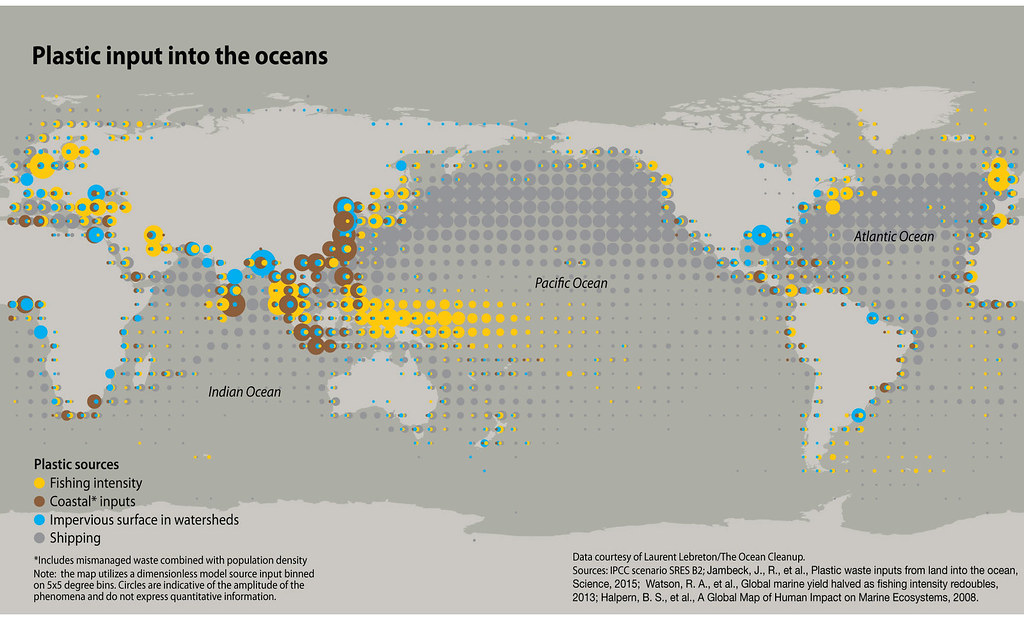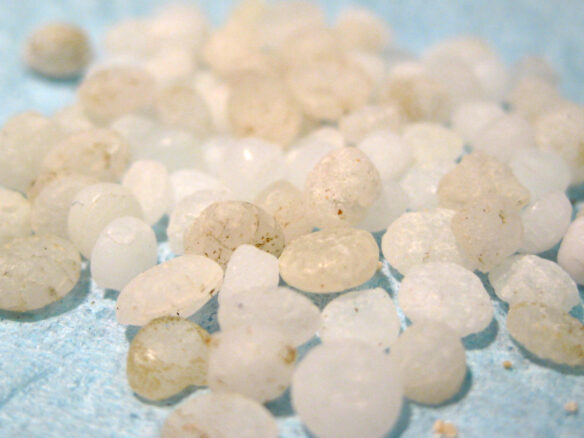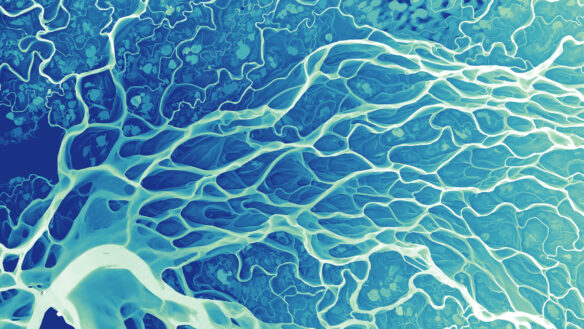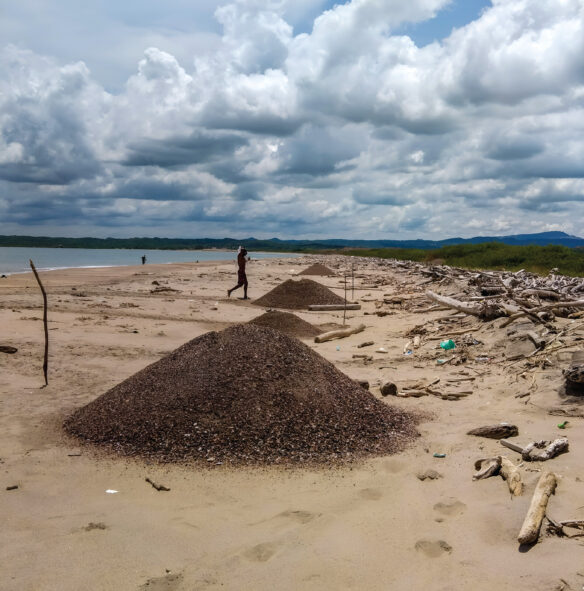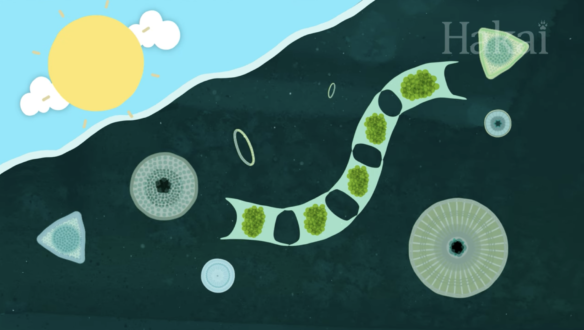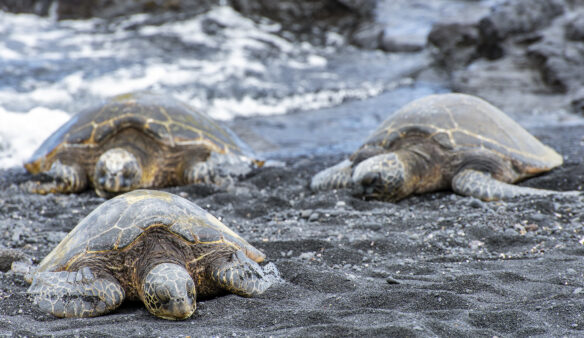Excerpt:
A new study has some good news, but there’s a problem: Ocean pollution appears to be growing fast.
There’s less plastic pollution flowing into the ocean from land than scientists previously thought, according to a study published Monday in the journal Nature Geoscience.
The researchers estimated that about 500,000 metric tons of plastic end up in the ocean each year, with about half from land. The other half comes from the fishing industry in the form of nets, ropes, buoys and other equipment.
An earlier, widely publicized study in 2015 estimated that about eight million metric tons of plastic were entering the ocean each year from rivers alone. The new research might seem like good news, but the full picture is complicated: The amount of plastic in the ocean is still increasing by about 4 percent every year, according to the study.
Even a small increase each year adds up to a huge accumulation over time. Within 20 years, the amount of plastic on the sea surface could double, the authors found.
“We’re accumulating more and more plastics in the environment,” said Mikael Kaandorp, the study’s lead author and a postdoctoral researcher at Forschungszentrum Jülich, a research institute based in Jülich, Germany…

